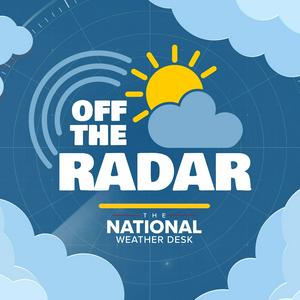The future of weather forecasting is being built right now.
Recorded on site at the annual meeting of the American Meteorological Society in Houston, this conversation with Ken Graham, Director of the National Weather Service, looks at where meteorology has been, where it is headed, and what it will take to get there.
This year’s conference theme, “Fast and Slow Thinking: the Human Factor in a Rapidly Changing World,” took on added meaning as a major winter storm disrupted travel and kept some participants away. But it did not slow the collaboration, innovation, and urgency inside the meeting rooms.
Ken Graham shares how artificial intelligence is transforming weather models, why partnerships across the weather enterprise matter more than ever, and how modern communication, from weather radios to social media, plays a critical role when it matters most. He also talks about the energy he sees across the National Weather Service, the next wave of talent coming in, and why he is genuinely excited about the year ahead. It is a conversation about technology, trust, and turning forecasts into action.


